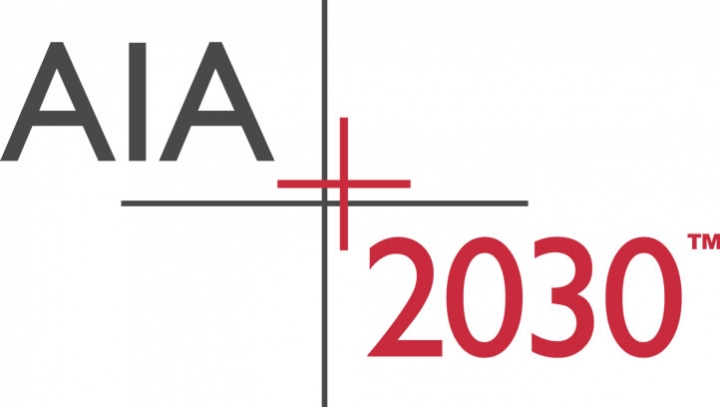To join AIA, download an application at www.aia.org
Support our chapter!
For more information on sponsor opportunities and benefits, contact us at aiahr757@gmail.com or 1(757)356-9971
AIA+2030 Online Series Course 5: Employing Passive Systems for Load Reduction

Learn how passive systems can reduce loads and work with other systems for more efficiency.
Description
Properly designed, a building captures existing site resources such as light, wind, and solar radiation to provide for the comfort and needs of occupants. Passive systems work in concert with site resources to manage building energy demand through design. This session will build upon the concepts introduced in Courses 3 and 4 and explore a holistic strategy for designing passive systems.
Learning Objectives
By the end of this course you will be able to:
- Define passive systems and identify specific elements of a passive design.
- Evaluate the effectiveness of various passive strategies based on available site resources.
- Determine the most successful strategies for a given site.
In support of the AIA+2030 Commitment, the Hampton Roads Chapter of the AIA will be presenting the AIA+2030 Online Series. The series is made up of ten 1 hour video presentations to be followed by 30 minutes of moderated group discussion at the office of Hanbury, 120 Atlantic Street, Norfolk Va. The courses will be offered over a 4 month period. Attendees will receive 1.5 hours LU-HSW credits for each session.
The building sector is the single largest consumer of energy and producer of greenhouse gas emissions. The AIA 2030 Commitment provides an actionable framework for architects and designers to meet the 2030 Challenge goals of carbon neutral buildings by 2030. This series will inspire architects to meet the 2030 goals through design strategies, efficient technologies and systems, and renewable energy resources.
Anyone completing all courses in the AIA+2030 Online Series will receive a certificate acknowledging their completion of all courses in the program, in addition to the individual course certificates available upon completion of each course.
The AIA+2030 Online Series is an AIA and Architecture 2030 co-production, sponsored by Autodesk and delivered through AIAU.
It's based on the highly successful AIA+2030 Professional Series, which was created by AIA Seattle and Architecture 2030, with support from the City of Seattle and Northwest Energy Efficiency Alliance.
Each session will be held from 4:00-5:30 with the last 30 minutes being a moderated discussion.
1.5 LU - HSW
Cost is $10 for members and $15 for non-members
September 19th - Course 1 - The 2030 Challenge: Goals and Design Process
October 3rd - Course 2 - The Power of Targets and Load Reduction
October 17th - Course 3 - Accentuate the Positive: Climate Responsive Design
October 30th - Course 4 - Building Skin: The importance of Thermal Design
November 14th - Course 5 - Employing Passive Systems for Load Reduction
November 28th - Course 6 - Daylighting and Integrated Lighting Design
December 12th - Course 7 - Rightsizing: Equipment and Controls for Super-Efficient Buildings
January 2nd - Course 8 - Site power: Renewable Energy Opportunities
January 16th - Course 9 - Staying in Shape: Commissioning, Operations, and Maintenance
January 30th - Course 10 - Putting it Together: Achieving 2030 Goals on the Project and in the Office
Event Properties
| Event Date | 11-13-2018 4:00 pm |
| Event End Date | 11-13-2018 5:30 pm |
| Registration Start Date | 09-11-2018 |
| Registered | 3 |
| Cut off date | 11-13-2018 12:00 pm |
| Location | Hanbury |
Ticket Information
| Ticket Type | Price |
|---|---|
| AIA members | $10.00 |
| non-members | $15.00 |
